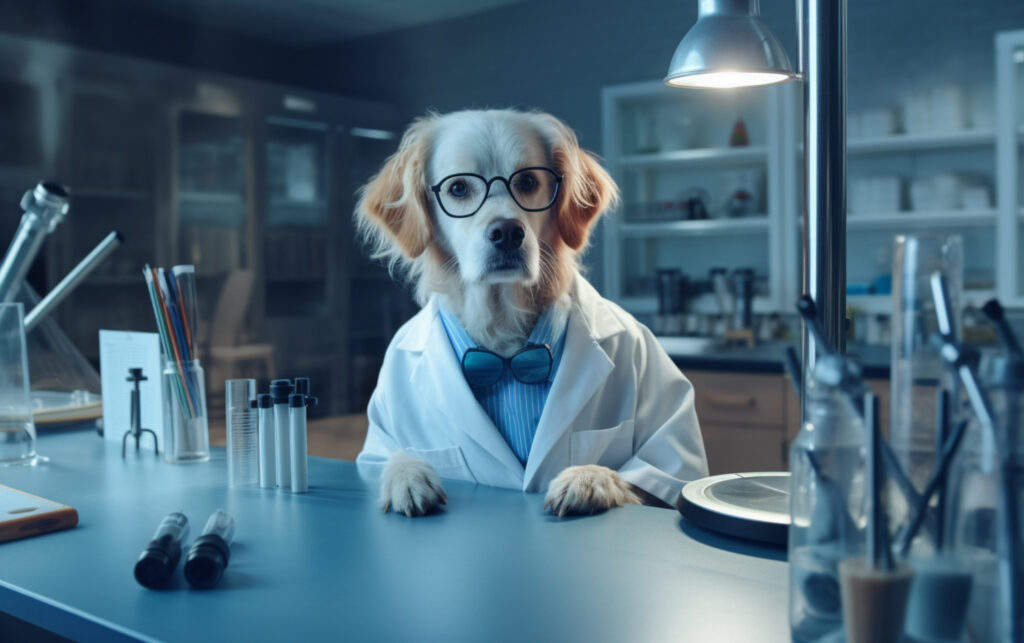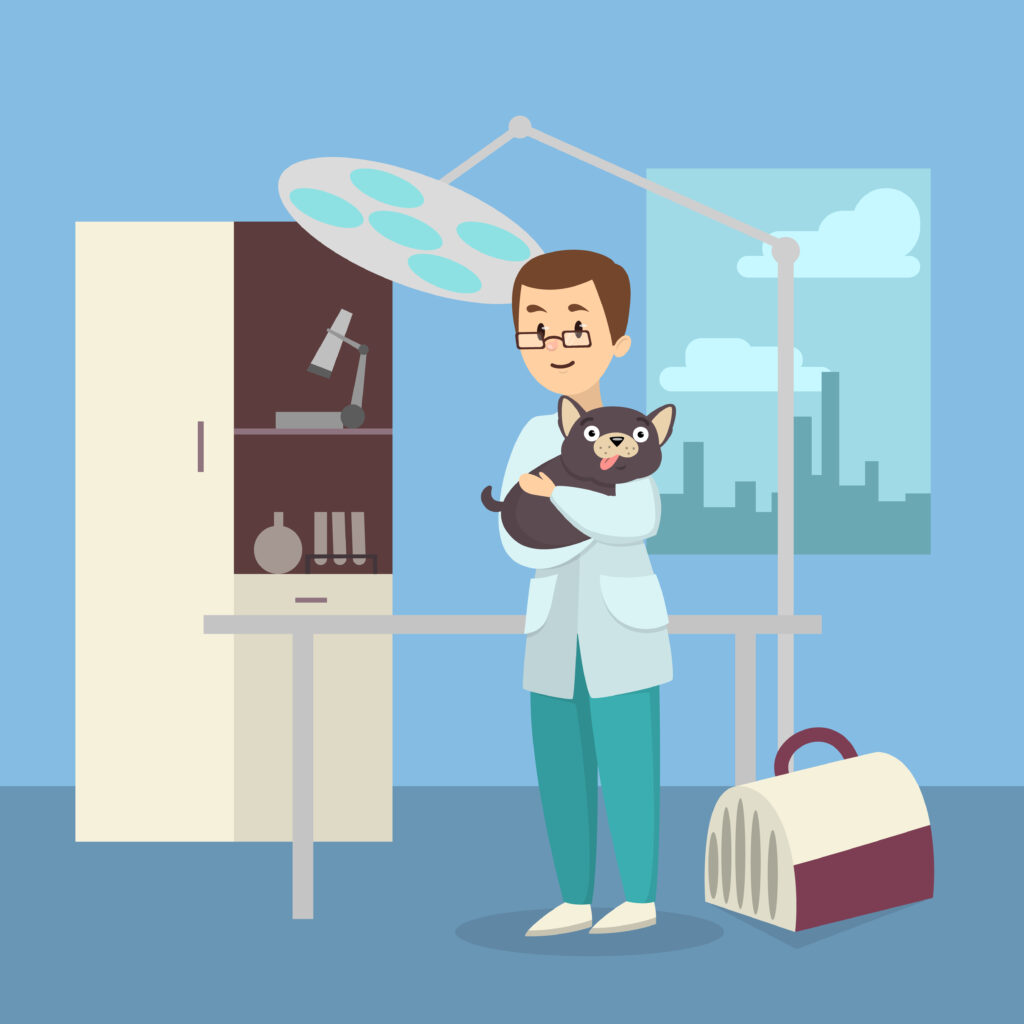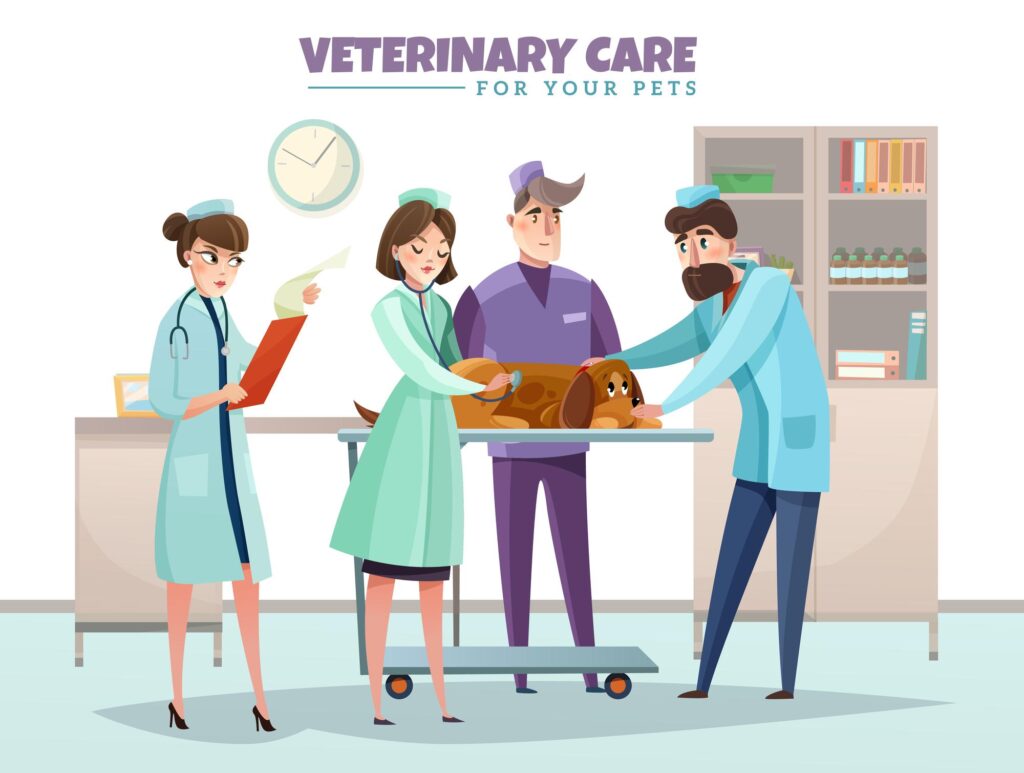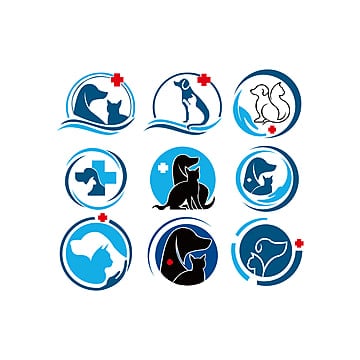Veterinary Science
The vital field of veterinary science is concerned with the health and welfare of animals. First, it deals with the identification and management of illnesses in animals, hence promoting their health. Also, veterinarians are essential in stopping the transmission of zoonotic illnesses, safeguarding both people and animals. In addition, veterinary science encompasses a wide range of topics, including anatomy, physiology, and pharmacology. As a result, experts are prepared to manage a wide range of medical issues in animals. Furthermore, By guaranteeing the health of cattle, veterinary science enhances agricultural productivity. In the meantime, veterinarians contribute to the protection of animals and assist protect endangered species. On the other hand, regular practitioners tend to concentrate on companion animals and pets.

వెటర్నరీ సైన్స్
వెటర్నరీ సైన్స్ అనేది జంతు ఆరోగ్యాన్ని మరియు సంక్షేమాన్ని దృష్టిలో ఉంచుకుని అభివృద్ధి చేసిన ముఖ్యమైన రంగం. మొదట, ఇది జంతువులలో వ్యాధులను గుర్తించడం మరియు చికిత్స చేయడం ద్వారా వారి ఆరోగ్యాన్ని కాపాడుతుంది. అదనంగా, వెటర్నరీ వైద్యులు జంతువుల నుండి మనుషులకు వ్యాప్తి చెందే జూనోటిక్ వ్యాధులను నివారించడంలో కీలక పాత్ర పోషిస్తారు. అంతేకాక, వెటర్నరీ సైన్స్ అనేక అంశాలను కవర్ చేస్తుంది, అందులో శరీర నిర్మాణ శాస్త్రం, శరీరక్రియాశాస్త్రం, ఔషధ శాస్త్రం మొదలైనవి ఉన్నాయి. దీని ఫలితంగా, ఈ రంగంలోని నిపుణులు వివిధ రకాల వైద్య పరిస్థితులను సమర్థవంతంగా నిర్వహించగలరు. మరింతగా, వెటర్నరీ సైన్స్ వ్యవసాయ ఉత్పత్తికి కూడా దోహదపడుతుంది, ఎందుకంటే పశువుల ఆరోగ్యం మెరుగుపడినప్పుడు వ్యవసాయం కూడా మెరుగవుతుంది. అంతలో, అటవీ పరిరక్షణలో కూడా వెటర్నరీ వైద్యులు కీలక పాత్ర పోషిస్తున్నారు, ముఖ్యంగా ప్రమాదంలో ఉన్న జంతు జాతులను కాపాడటంలో. ఇతరంగా, ప్రైవేట్ ప్రాక్టీస్లో ఉండే వారు ఎక్కువగా పెంపుడు జంతువులు మరియు ఇతర జంతువుల వైద్యంలో నిమగ్నమై ఉంటారు. అదనంగా, ఈ రంగంలో సిద్ధాంతం మరియు ప్రాయోగిక నైపుణ్యాల రెండూ చాలా ముఖ్యం. అందువల్ల, ఈ కోర్సులో శిక్షణ మరియు ఇంటర్న్షిప్లకు కూడా ప్రాధాన్యత ఇవ్వబడుతుంది. చివరగా, వెటర్నరీ సైన్స్ జంతు సంరక్షణతో పాటు ప్రజా ఆరోగ్య పరిరక్షణలో కూడా కీలకమైన పాత్ర పోషిస్తుంది.
Veterinary Science Syllabus 2024
| Subject | Details |
|---|---|
| Veterinary osteology | This course provides an introduction to the non-human skeleton, with an emphasis on the fundamental identification of both complete and fragmentary skeletal remains. In addition, the course will thoroughly cover subjects including age, sex determination, and taphonomy. Furthermore, it will explore the biology, development, and anatomy of bones, offering a comprehensive grasp of these fields. |
| Scope and importance of Biochemistry | Biochemistry combines biology and chemistry to study living things. Additionally, it propels advancements in science and medicine across a range of fields, such as nutrition, forensics, and medicines. Additionally, You will learn more about the workings of the universe and be able to create novel and inventive applications by studying molecular-level chemical interactions through the study of biochemistry. |
| Animal Histology | The study of animal tissues is known as histology. More precisely, histology—also called organogenesis—is the microscopic study of animal and human body tissues and how they are arranged to become organs. |
| Veterinary myology | Unlike the scientific study of bones, osteology, myology focuses on the functioning of the muscular system. |
| Animal Husbandry | The activity of breeding, caring for, and rearing farm animals—such as cattle, dogs, sheep, and horses—for commercial gain is known as animal husbandry in science. |
| Pharmacology | The multidisciplinary field of pharmacology studies several aspects of drug development, discovery, and preclinical safety. |
| Clinical Abnormalities in Domestic Animals | This course covers the most important chromosomal abnormalities (CA) found in animals. |
| Anesthesiology | Students will have the knowledge necessary to comprehend and care for the entire human body after studying about anesthetic care, pain management, and critical care medicine. Furthermore, this understanding enables them to manage a variety of intricate medical problems with increased proficiency. |
| Scope of Pharmacology | The multidisciplinary field of pharmacology studies several aspects of drug development, discovery, and preclinical safety. |
| Spermatogenesis in animals | Spermatogenesis, a continuous process that happens throughout an animal’s reproductive lifetime or season, is taught to students. |
| Drug response by ANS | The basics of pharmacodynamics and how genetic variations in therapeutic targets can affect medication response are the main topics of this chapter. |
| Veterinary Immunology | Immunology is a branch of biology and biomedical sciences that studies the tissues, cells, and organs that are in charge of recognizing foreign objects. |
| Introduction to aquatic animals | Students gain knowledge about the animals that live in or close to water, such as those found in ponds, lakes, rivers, and seas, and that are essentially aquatic organisms. |
| Ethics and Animal Welfare | In addition to gaining a thorough understanding of the underlying concepts pertaining to animal welfare, students also become aware of the numerous scientific methodologies that can be employed to assess it. Moreover, They also gain knowledge of the moral dilemmas surrounding animal welfare, which equips them to evaluate these issues critically and deal with them in practical settings. |
| Animal, Bird and Aquatic animal diseases | Veterinary medicine is the branch of medicine that studies, prevents, and treats diseases in animals, including wild animals and animals used in scientific research. |
| Animal Healthcare Management | Global attempts to prevent, manage, and control disease must take into account the interdependence of human and animal health. |
| Veterinary Epidemiology | Essential methodological procedures for planning, carrying out, evaluating, interpreting, and disseminating epidemiological research are taught in this course. However, It also discusses disease prevention and control strategies for populations of both humans and animals. |
| Animal Nutrition | The study of an animal’s dietary needs is known as animal nutrition. Additionally, The components of the feed that animals consume and utilize make up these nutritional requirements. |
| Animal Genetics | This course includes knowledge about the genes in animals. |
| Viral diseases | This course includes knowledge and research about the viral diseases found in animals. |
| Livestock breeding | Candidates will learn about animal husbandry and population genetics. Firstly, The candidates will understand the implications of the industry and examine how animal breeding affects different animal populations. |
| Quality meat production Techniques | Candidates will gain knowledge of the consistency and quality of meat, both of which are crucial for assuring customer satisfaction. |
| Veterinary Hygiene | Candidates will study sunblock, antimicrobial soap, handwashing for healthcare workers, and skin antiseptics, among other topics. |
| Veterinary Gynaecology | a medical field that focuses on understanding, treating, and preventing conditions affecting female animals’ sex organs. |
| Veterinary Reproduction | Candidates will learn about reproduction in animals. |
| Diagnostics | In medicine, diagnostics is simply the act of determining the presence of a disease based on its symptoms or indicators and then utilizing that knowledge to put the proper preventive measures in place. |
| Surgery | Candidates get to learn about surgical techniques. |
| Pet Animal management and healthcare | The benefits of owning a pet for your health are numerous. Engaging in outside activities, socializing with others, and getting exercise can be facilitated by pets. Moreover, This course emphasizes the advantages of pet ownership while covering the basics of handling and caring for an animal. |
| Poultry breeding | Candidates receive instruction on basic genetic ideas such crossbreeding, intense mass selection, and inbreeding. Additionally, With an emphasis on creating strains that lay eggs swiftly and economically, these methods are utilized to improve the production of both meat and eggs. |
Practical Training
The practical instruction that students receive in veterinary science is essential in molding their understanding of the care of animals. The primary goal of this program is to expose students to a variety of practical experiences that are necessary for the development of clinical abilities. They are taught how to perform small procedures, give immunizations, and conduct physical examinations, among other skills.
Furthermore, hands-on instruction aids students in mastering diagnostic methods like blood tests and imaging, which are essential for precise disease diagnosis. Additionally, by interacting with animals, students gain a deeper comprehension of animal welfare and behavior, which improves their capacity to offer compassionate care.
Additionally, as this training frequently takes place in actual veterinary hospitals or clinics, students get the opportunity to work alongside seasoned vets. They consequently hone their technical abilities and gain confidence in their ability to make decisions. To sum up, practical training helps students become successful veterinarians by bridging the gap between their academic understanding and actual application.
Internship
A Veterinary Science Internship provides hands-on experience for students and graduates pursuing a career in veterinary medicine. These internships are usually offered by animal clinics, hospitals, research institutions, wildlife centers, or agricultural departments. Here’s a breakdown of what a typical veterinary internship might involve:
1. Roles and Responsibilities:
- Clinical Practice: Assisting veterinarians with diagnosis, treatment, and surgery on animals. Firstly, This includes general health check-ups, administering vaccinations, and providing first aid.
- Animal Care: Ensuring animals are well cared for, including feeding, cleaning, and monitoring their health status.
- Research: Participating in research projects related to animal health, nutrition, or disease management.
- Record Keeping: Maintaining detailed records of treatments, animal health data, and observations.
- Public Interaction: Helping educate pet owners or farmers on proper animal care and handling.
2. Skills Developed:
- Practical Skills: Experience in handling animals, conducting physical exams, administering medications, and performing minor procedures.
- Diagnostic Skills: Learning how to interpret lab tests, x-rays, and other diagnostic tools.
- Communication Skills: Engaging with clients, veterinarians, and other healthcare professionals.
- Problem-Solving: Addressing a wide range of animal health issues, from preventive care to emergencies.
3. Types of Internships:
- Small Animal Practice: Focuses on pets like dogs, cats, and other domestic animals.
- Large Animal Practice: Concentrates on livestock, horses, and farm animals.
- Wildlife and Exotic Animals: Deals with non-domestic animals in zoos, sanctuaries, or wildlife centers.
- Research and Lab Work: Opportunities in animal health research, biotechnology, and disease prevention.

4. Requirements:
- Most internships require students to be enrolled in or have completed a veterinary program.
- A strong interest in animal welfare and the ability to work under the supervision of licensed veterinarians.
5. Benefits:
- Career Advancement: Internships can provide valuable networking opportunities and enhance your resume for future job prospects.
- Certifications: Some internships offer certifications that can improve your chances of securing a permanent job in veterinary care.
- Real-World Exposure: Gain practical, real-life experiences that textbooks cannot provide.
6. How to Apply:
- Research veterinary hospitals, clinics, or universities offering internships.
- Submit your resume, academic records, and a statement of purpose explaining your interest in veterinary science and the internship.
Would you like information on veterinary internship programs in specific regions?
Specializations
A wide range of specializations in veterinary science enable practitioners to concentrate on particular facets of animal health. For example, internal medicine deals with disease diagnosis and treatment, whereas veterinary surgery focuses on surgical techniques for animals. Furthermore, veterinary pathology is essential to our understanding of diseases through autopsies and lab work. Furthermore, although exotic animal medicine concentrates on the care of uncommon and unconventional pets, specializations like animal nutrition guarantee appropriate diet and health management. When combined, these domains support a comprehensive approach to veterinary treatment, guaranteeing a range of specializations within the industry.



